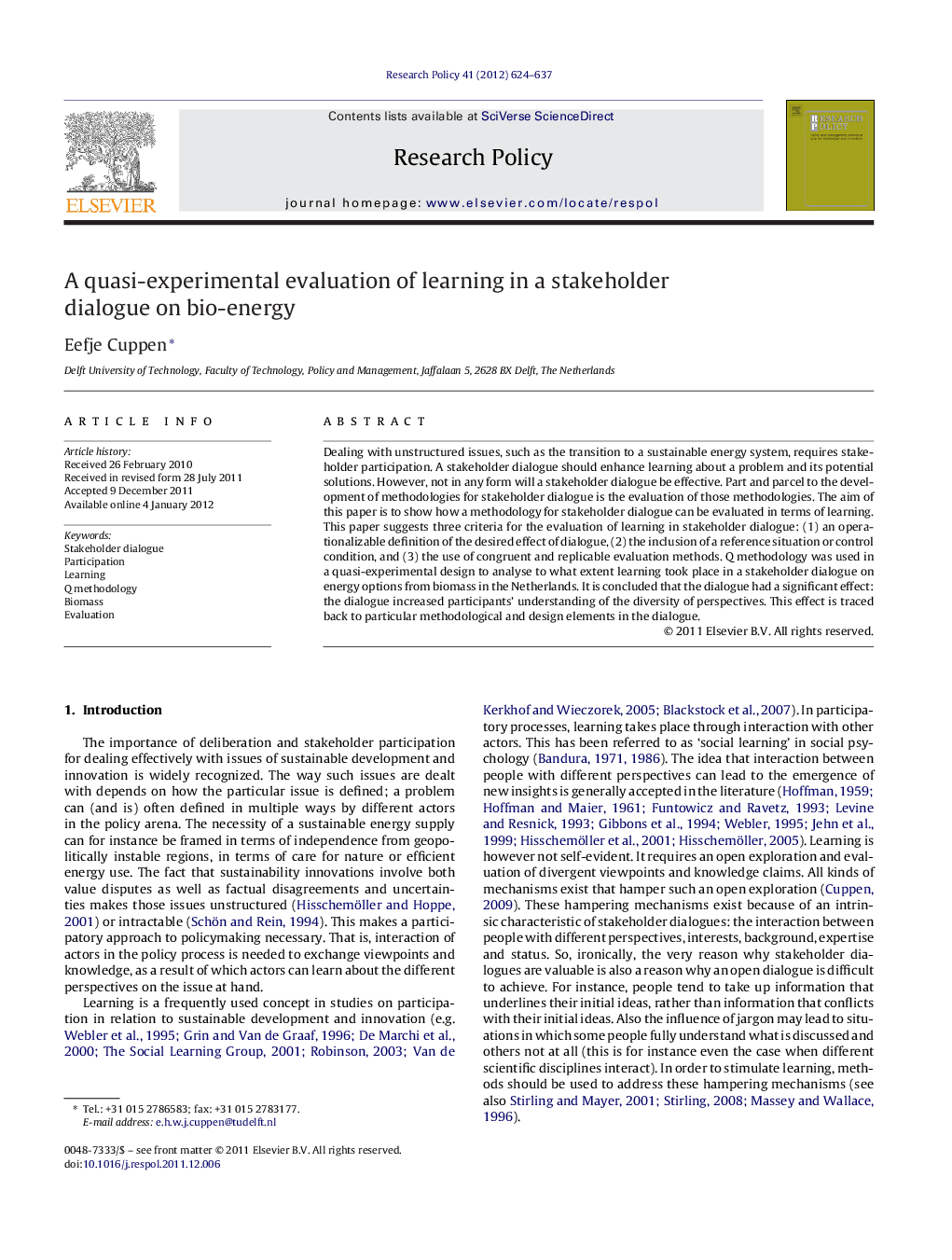| Article ID | Journal | Published Year | Pages | File Type |
|---|---|---|---|---|
| 985002 | Research Policy | 2012 | 14 Pages |
Dealing with unstructured issues, such as the transition to a sustainable energy system, requires stakeholder participation. A stakeholder dialogue should enhance learning about a problem and its potential solutions. However, not in any form will a stakeholder dialogue be effective. Part and parcel to the development of methodologies for stakeholder dialogue is the evaluation of those methodologies. The aim of this paper is to show how a methodology for stakeholder dialogue can be evaluated in terms of learning. This paper suggests three criteria for the evaluation of learning in stakeholder dialogue: (1) an operationalizable definition of the desired effect of dialogue, (2) the inclusion of a reference situation or control condition, and (3) the use of congruent and replicable evaluation methods. Q methodology was used in a quasi-experimental design to analyse to what extent learning took place in a stakeholder dialogue on energy options from biomass in the Netherlands. It is concluded that the dialogue had a significant effect: the dialogue increased participants’ understanding of the diversity of perspectives. This effect is traced back to particular methodological and design elements in the dialogue.
► Evaluating a methodology for stakeholder dialogue in terms of learning. ► Q methodology as a tool for quasi-experimental evaluation of learning in stakeholder dialogue. ► Applied in a problem structuring dialogue on bio-energy in the Netherlands. ► Significant learning effect of dialogue: improved understanding of the diversity of perspectives. ► Results further analysed and discussed on the basis of qualitative data from the dialogue.
